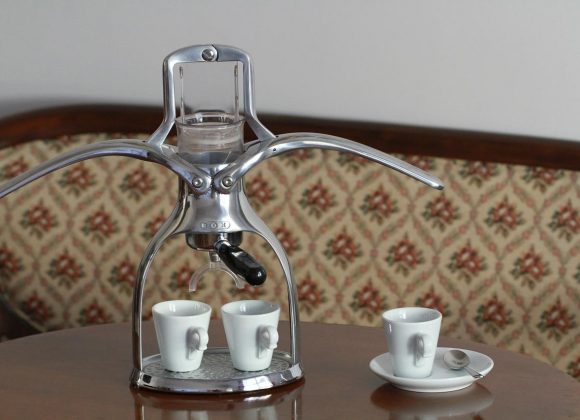Coffee When Pregnant – You can find caffeine in a lot of different drinks such as coffee, tea, and energy drinks. It is a substance that acts as a stimulant and is very widely consumed. Caffeine intake can result in better concentration, energy boosts, and faster reaction times. Despite it being generally safe to consume, doctors recommend you don’t exceed your daily caffeine threshold (around 400 mg for most people).

But what about those who are pregnant? Is the caffeine threshold of pregnant women also 400 mg per day or less? Are you even allowed to go to your local coffee shop and down an espresso while pregnant? Today, we will be discussing ideal caffeine consumption for pregnant women.
How Safe Is It To Drink Coffee When Pregnant ?
Just like most things in life, consuming caffeine also has potential positives and negatives:
Possible Upsides
- Stimulates the brain, thus helping you in staying awake and enhancing your mental alertness
- When used in combination with pain relievers, an example being acetaminophen, caffeine can help treat headaches
- Increases energy levels and mental focus
- Contains antioxidants that help combat cell damage and lower the risk of developing serious chronic diseases such as cancer and stroke
Possible Downsides
Sure, caffeine does have a lot of upsides. But what are the potential negatives that can come with consuming caffeine during pregnancy?
- Pregnant women take much longer (1.5 to 3.5 times) to metabolise caffeine. This means caffeine stays in the body for longer and thus extends any positive or negative effects.
- Studies have shown that consuming more than 200 mg of caffeine per day can increase the risk of a miscarriage.
- The caffeine that enters the bloodstream of a pregnant woman will eventually enter the baby’s bloodstream through the placenta. This may give rise to health problems for the baby.
- Researchers also found that consuming just 50 – 150 mg of caffeine per day can reduce the birth weight of babies by 13%.
- There are other long term side effects of caffeine consumption that also affect the general public. This includes high blood pressure, restlessness, diarrhoea, irregular heartbeat, anxiety, sleep problems, digestive issues, etc.
Pregnancy Caffeine Suggestions
Experts recommend pregnant women only consume a maximum of 200 milligrams of caffeine per day. That is equivalent to around one – two cups of brewed coffee or two – four cups of brewed tea. This is to reduce the risk of having a miscarriage.
Some doctors even suggest pregnant women should not be drinking caffeine at all.
This is to avoid a low birth weight as well as reduce the risk of the baby developing health issues. The bodies of pregnant women are also already under a lot of pressure, so the side effects of caffeine like anxiety and sleep problems will make the pregnancy much tougher. Non – caffeine beverages such as water and decaf coffee are still the best options.
If you do decide to consume caffeine, the source is also something to be careful about. Energy drinks are a big no – go for pregnant women. This is because outside of caffeine they often contain other harmful substances such as artificial sweeteners, preservatives, and ginger.
Some herbs and herbal teas are also proven to negatively affect pregnant women. This includes liquorice root, fenugreek, and chicory root. If you still want to drink herbal tea, we recommend drinking those that are safe for pregnant women such as peppermint leaf, ginger root, and lemon balm.
Before eating and drinking anything during pregnancy, it is a good practice to always ask your doctor first.
How Much Caffeine Is There In Different Beverages?
To help you stay within your daily caffeine threshold of 200 mg, here is a list of the caffeine content of different popular drinks:
- Brewed coffee: 60 to 200 mg per 250 ml
- Energy drinks: 50 to 160 mg per 250 ml
- Brewed tea: 20 to 120 mg per 250 ml
- Espresso: 30 to 50 mg per 30 ml
- Soft drinks: 30 to 60 mg per 350 ml
- Chocolate milk: 2 to 7 mg per 250 ml
- Decaf coffee: 2 to 4 mg per 250 ml




